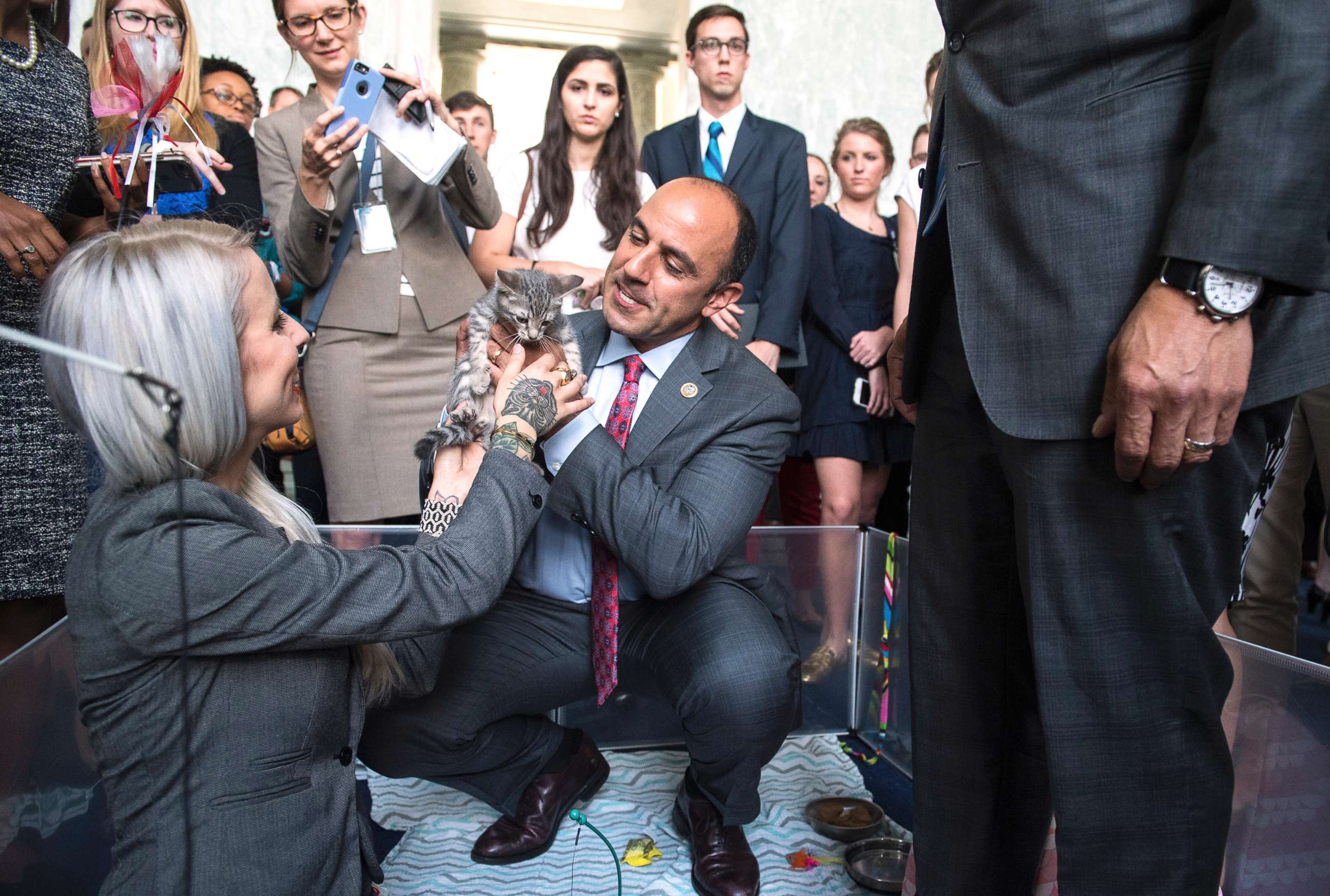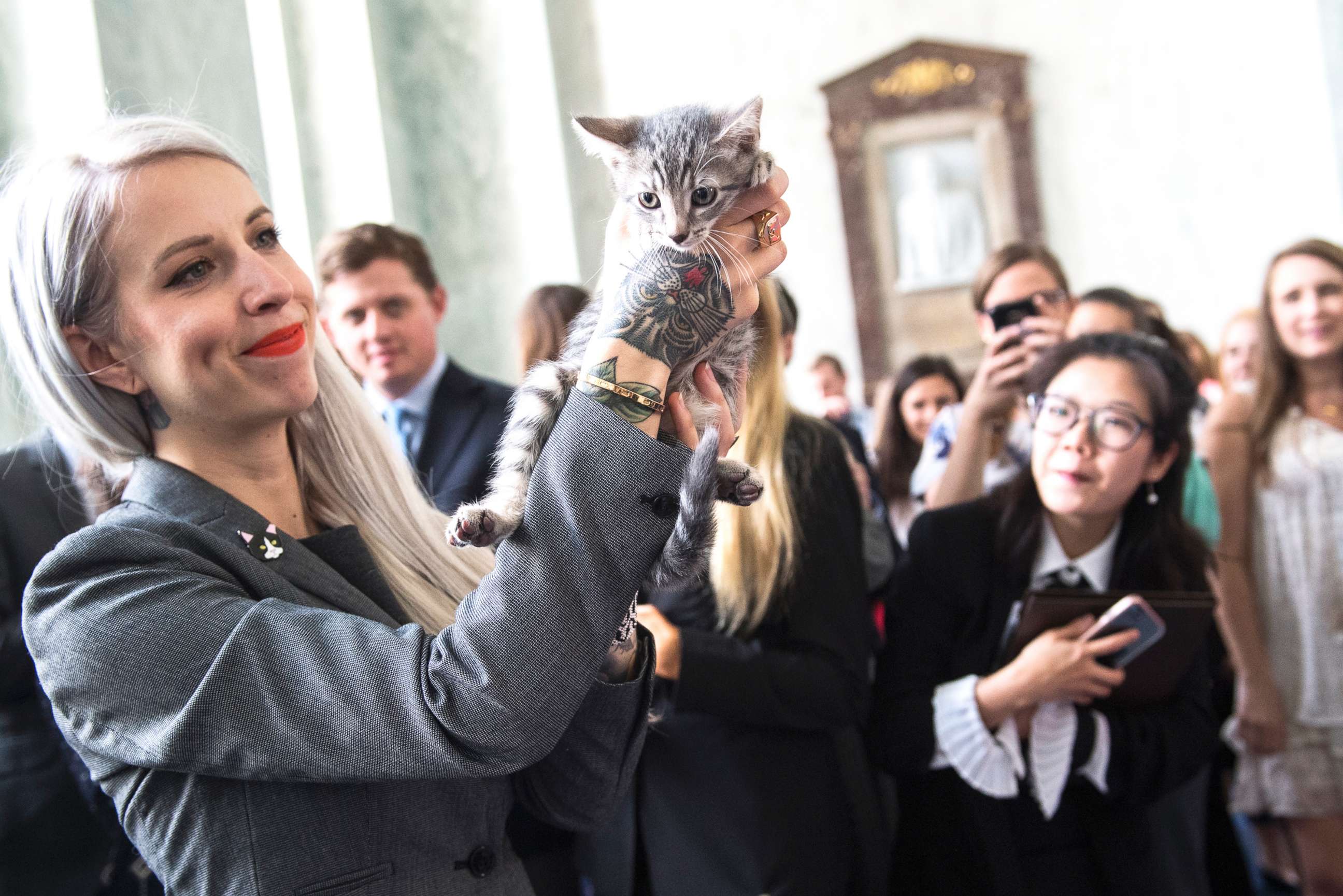Bill seeks to end what some lawmakers, advocacy groups call ‘taxpayer-funded kitten slaughter’
The KITTEN act aims to stop the USDA from killing kittens after testing.
Legislators introduced an act Thursday to stop what they are calling “taxpayer-funded kitten slaughter.”
The bipartisan bill aptly named Kittens in Traumatic Testing Ends Now Act, KITTEN Act for short, aims to stop the U.S. Department of Agriculture’s (USDA) practice of killing kittens after they are used in agency testing.
Lawmakers in both the House and Senate allege that since 1970, the USDA has spent $650,000 of taxpayer dollars each year to infect and later kill kittens in a Beltsville, Maryland laboratory.

According to the legislators, the USDA lab breeds up to 100 kittens per year and once they’re two months old, they feed them parasite-infected raw meat. The lab then collects the parasitic eggs that form in their stool for experimental use, and slaughter and incinerate the 3-month-old felines.
“The USDA’s decision to slaughter kittens after they are used in research is an archaic practice and horrific treatment, and we need to end it,” Sen. Jeff Merkley, D-Ore., said in a press release. “The KITTEN Act will protect these innocent animals from being needlessly euthanized in government testing, and make sure that they can be adopted by loving families instead.”
The disease the USDA is researching is called toxoplasmosis. It is "considered to be a leading cause of death attributed to foodborne illness in the U.S," according to the Centers for Disease Control (CDC). More than 40 million people carry the parasite, but very few will develop symptoms. It can have "severe consequences" on women who are infected during pregnancy or anyone with a compromised immune system.
The USDA defends their research and claims it has been "internationally credited with helping to cut the prevalence of [the infection] by as much as 50 percent in the U.S.," in a statement provided to ABC News.
The USDA told ABC News they do not seek adoptions for the infected cats because of the potential risk they could pose to their adoptive families.
"We will always place public safety first," a USDA Agricultural Service spokesperson said.
According to the CDC, American Veterinary Medical Association, and Association of American Veterinary Medical Colleges, the disease is treatable, the kittens can be adopted and are safe to have as pets.

Last spring, legislators introduced a similar bill entitled the "Kitten Act of 2018," but it did not advance before the end of session. The Senate Appropriations Committee was successful in getting language enacted in the most recent spending bill asking the USDA to find other testing methods and to develop a program to adopt out cats that are no longer needed.
The agency has said that the total number of kittens killed is exaggerated, but a USDA administrator told Congress a total of 2,988 cats have been used for research since 1982.
The bill is championed by the watchdog group White Coat Waste Project which brought these practices to light. They obtained pictures of adult cats that were used for breeding inside the USDA lab through a FOIA request, and recently started an advertisement campaign against the labs in Maryland.
They also created specific Facebook ads targeted at USDA employees encouraging them to "blow the whistle" on the agency for a $1,000 reward. The comments are filled with USDA employees rejecting the claim that their employer kills kittens, but vice president of the White Coat Waste Project, Justin Goodman, the owner of two cats himself, believes they don't know what is going on inside the USDA.
"The USDA is full of misleading claims and outright fabrications," Goodman told ABC News. "They continue to defend this archaic practice because of institutional inertia and money."
The KITTEN act would require that the USDA end “the use of kittens and cats in any experiments that unnecessarily hurts the animals.” Goodman says that if successful this act would stop the research entirely.
"The fact that we need a piece of legislation to tell the federal government to stop killing kittens is ridiculous on its face, but what’s even worse is when you hear the details,” Rep. Brian Mast, R-Fla., said.
ABC News' John Parkinson contributed to this report.




